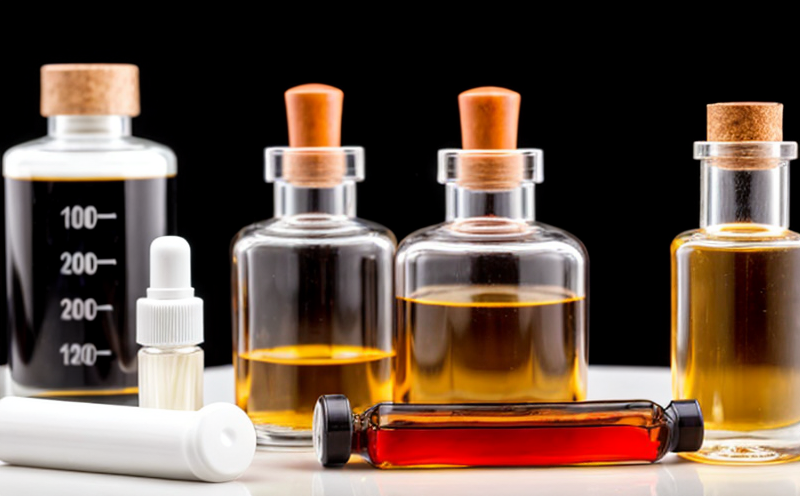Veterinary Injectable Testing
The testing of veterinary injectables is a critical component in ensuring the safety and efficacy of pharmaceutical products used in animal health. This service focuses on analyzing the chemical composition, purity, stability, and compatibility of injectable formulations intended for use in livestock, companion animals, or other domesticated animals.
Our laboratory employs state-of-the-art analytical instruments and adheres to international standards such as ISO, ASTM, EN, and IEC. The process involves several key steps: sample collection, preliminary examination, formulation analysis, stability testing, compatibility studies, and final validation checks. Each step is meticulously documented and reported in accordance with regulatory requirements.
Sample preparation for veterinary injectables typically includes the dissolution of active ingredients into appropriate solvents, followed by filtration and dilution to ensure accurate measurement. The choice of solvent and diluent depends on the specific chemical nature of the drug being tested. This preparation is crucial to prevent any interference with the analytical process.
Once prepared, the samples undergo a series of analyses aimed at determining the presence of active pharmaceutical ingredients (APIs), excipients, impurities, and potential contaminants. High-Performance Liquid Chromatography (HPLC) and Infrared Spectroscopy are commonly used to identify these components. Additionally, Dissolution Testing is performed to evaluate how effectively the drug is released from the injectable form.
Stability studies are conducted over extended periods to assess changes in chemical stability due to environmental factors such as temperature, light, and humidity. These tests help ensure that the injectables maintain their integrity throughout storage and use. Compatibility studies explore interactions between different components within a formulation to prevent adverse reactions or degradation.
The results of these analyses are meticulously analyzed using advanced software tools which provide detailed insights into the quality attributes of each batch. Compliance with specified acceptance criteria is strictly monitored, ensuring that only batches meeting the required standards proceed further in the manufacturing process. Any deviations from acceptable limits are thoroughly investigated and documented before corrective actions can be taken.
Our laboratory also provides support for regulatory submissions by preparing comprehensive reports detailing all findings along with recommendations based on our extensive knowledge of both product characteristics and relevant guidelines. This information is invaluable during registration processes with national authorities like the FDA or EMA, facilitating smoother approvals and market access.
Benefits
The benefits derived from comprehensive veterinary injectable testing extend beyond mere compliance; they significantly contribute to enhancing animal welfare through safer and more effective treatments. By ensuring that only high-quality products reach the hands of veterinarians, this service plays a pivotal role in preventing unnecessary suffering among animals while supporting sustainable practices within the industry.
- Enhanced Product Safety: Ensures no harmful substances are present in veterinary medicines, safeguarding both animal health and public safety.
- Increased Efficacy: Guarantees that active ingredients function as intended without interference from other constituents, leading to better treatment outcomes for animals.
- Regulatory Compliance: Helps manufacturers meet stringent standards set by regulatory bodies worldwide, thereby avoiding costly penalties or delays in product launches.
- Sustainability: Supports environmentally friendly practices by reducing waste associated with ineffective or poorly performing products.
Industry Applications
Veterinary injectable testing finds application across various sectors including large animal medicine, small animal care, zoo and wildlife management, and research institutions. It is particularly crucial in ensuring the quality of vaccines, antibiotics, painkillers, anesthetics, and other essential medications used in these diverse environments.
- Large Animal Medicine: Ensuring robust vaccines against diseases like anthrax, brucellosis, or leptospirosis which are critical for maintaining herd health.
- Small Animal Care: Providing assurance that treatments for pets suffering from conditions such as heartworm disease, flea infestation, or cancer are safe and effective.
- Zoo & Wildlife Management: Supporting conservation efforts by providing reliable data on the efficacy of medications administered to endangered species living in captivity.
- Research Institutions: Facilitating scientific advancement by validating new compounds before they enter clinical trials or become widely available products.
Use Cases and Application Examples
In large-scale livestock operations, regular batch testing ensures consistent quality across numerous farms. For instance, when introducing a new vaccine against Newcastle disease in poultry flocks, rigorous testing helps confirm its potency before widespread deployment.
For small animal practices, precise injectable formulations are essential for addressing specific health issues like arthritis or thyroid disorders in pets. Our services help ensure these treatments work as intended without side effects.
In zoological parks, accurate evaluation of exotic species' medications is vital given their unique physiological responses to various therapies. By conducting thorough testing, veterinarians can tailor care plans specifically suited for individual animals.
Research laboratories benefit greatly from our expertise in developing novel treatments or enhancing existing ones. Testing plays a key role in identifying optimal dosages and potential synergistic effects between different components within formulations.





